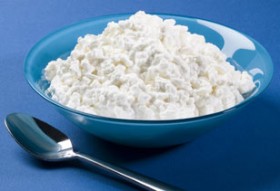4 Diet Pitfalls to Avoid
The human body is one of the most underestimated and oldest machines to date. Unlike modern technology, we cannot just install updates or exchange complicated programs for those more user-friendly when our bodies are not cooperating with us. We do not possess the ability to click “general,” then go to settings, and change our body […]
The human body is one of the most underestimated and oldest machines to date. Unlike modern technology, we cannot just install updates or exchange complicated programs for those more user-friendly when our bodies are not cooperating with us. We do not possess the ability to click “general,” then go to settings, and change our body fat percentage, our waist measurement, or the firmness of our derrieres. (If anyone can figure that out though, sign me up please!)
Despite the body’s complicated system, many people approach dieting as a simple task that only requires minimal effort for maximum results. Dieting is complicated, scientific, and the most important component to being healthy and achieving your fitness goals. Fitness success is based 80% on clean eating, whereas exercise only accounts for 20% of the effort. Any natural changes we want to make to our bodies require time, sacrifice, self-discipline, tedious calculations, and lots of trial and error. If you want to avoid giving up because your results seem discouraging then be sure to avoid these four common diet mistakes.
1) The less you eat, the faster you’ll see results
This is a dangerous yet common practice among people trying to lose body fat. The body is an ancient prototype; its primary function is not to die. When someone eats below 1200 calories a day, the body starts sounding the alarms, and quickly moves into “starvation mode.” The body doesn’t know why it’s suddenly being fed less, it doesn’t think, “Oh I have to look good for the beach this summer.” Instead, it thinks, “I have fallen down a dark well in the middle of nowhere, and I have no idea when I’ll have access to food again.” Oh yeah, did I mention the body is a pessimistic killjoy? In response to this tragic scenario, the body will hold on to every last bit of fat it has as a last resort of energy. Hold on, it gets better—most of this guarded fat is left around the torso to protect vital organs, the one place people do not want the extra pudge. That is why dieters commonly complain about losing weight everywhere except their bellies, giving some people the “pregnant stick figure” look. The trick isn’t to eat less food; it’s to eat less processed junk food, and several small, balanced, and healthy meals throughout the day instead of three large meals.

2) Eat mounds of fruits and vegetables, and the fat will just melt off
This concept sounds like a logical hypothesis, but it isn’t true. Fruits and vegetables are wonderful sources of energy, vitamins, and minerals but people forget that they do have calories, and in the end the body doesn’t recognize one calorie from another. If you are maintaining a healthy diet full of fresh produce, yet still consuming more calories than you are burning then you will not lose weight. In some cases, you’ll gain weight. Fruits and vegetables are also high in simple carbohydrates, which can be bad for those sensitive to carbohydrates because the excess carbohydrates are often stored as belly fat. This does not mean you should cut fruits and vegetables out of your diet; it just means you should consume them in amounts appropriate to your individual macronutrient calculations.
3) Just eat healthy food, calculating macronutrients is unnecessary
If the goal is to just be healthy, then by all means skip the time-consuming calculations, but if your goal is to buff up, shred, trim down your waist, or increase thigh and glut size, then it is necessary to calculate your macronutrients. Macronutrients are the amounts of carbohydrates, fats, and proteins the body needs on a daily basis to function. (Yes, you need to consume healthy fat to stay alive and functioning.) Healthy fat from avocados, unsalted nuts, peanut/almond butter, and olive oil are all good choices. The amount of each macronutrient needed to yield the best fitness results depends on the individual. Following these calculations is important because guessing how much of each one you need easily results in over or under consuming any of the three. The over consumption of any of the three will result in stored fat, and under consumption could result in the loss of hard earned muscle mass; that’s just how the body operates. Macronutrient calculators can be found for free online on various websites, as well as free tutorial videos on YouTube. Eating the right amount of carbohydrates, fats, and proteins each day has an undeniable effect on how your body responds to your physical activity. There are people who have achieved results without these calculations, but this takes years longer to accomplish and must often be accompanied by unhealthy doses of supplements.
4) Don’t eat before bed
There is a belief circulating that eating before bed is always a big “no no.” Eating a healthy snack an hour or so before bed, however, is recommended for several reasons: better sleep, more efficient muscle recovery and preservation during fat loss, and it helps with dietary regularity. Having a healthy snack with slow digesting proteins, such as casein found in dairy products, like milk and cottage cheese is essential for anyone who works out. The body needs constant fuel to strengthen, maintain, and recover muscle tissue exhausted during workouts because the body does not stop operating when we go to sleep. During sleep, the body first digests food followed by the absorption phase, during which essential vitamins, minerals, and other nutrients are extracted and sent off to fulfill various functions. If there isn’t food in the stomach to digest, there will not be any nutrients for the body to absorb. In that case the body will extract energy from other sources, including muscle tissue. One of the goals of diet and exercise is to build strength, endurance, and minimize access to fat storage. Each time a healthy snack is not eaten before bed, a portion of that hard earned muscle will be compromised and over time this could cause health and fitness setbacks.
The body figuratively and literally has a mind of its own so the results you want after weeks of workouts and dieting may not be the results your body yields. This makes the already hard task of getting in shape even more frustrating. Avoiding some of the common mistakes made by those new to the fitness world will increase overall results in fat loss, muscle strength and growth, and endurance.
Jacqueline Perrier-Gillette is currently a resident of Paris, France, where she lives with her husband. Together the two of them operate their small translation company, giving Jacqueline the opportunity to observe the French and their culture up close. She is an avid reader, writer, and student of foreign languages.
By Jacqueline Perrier-Gillette





